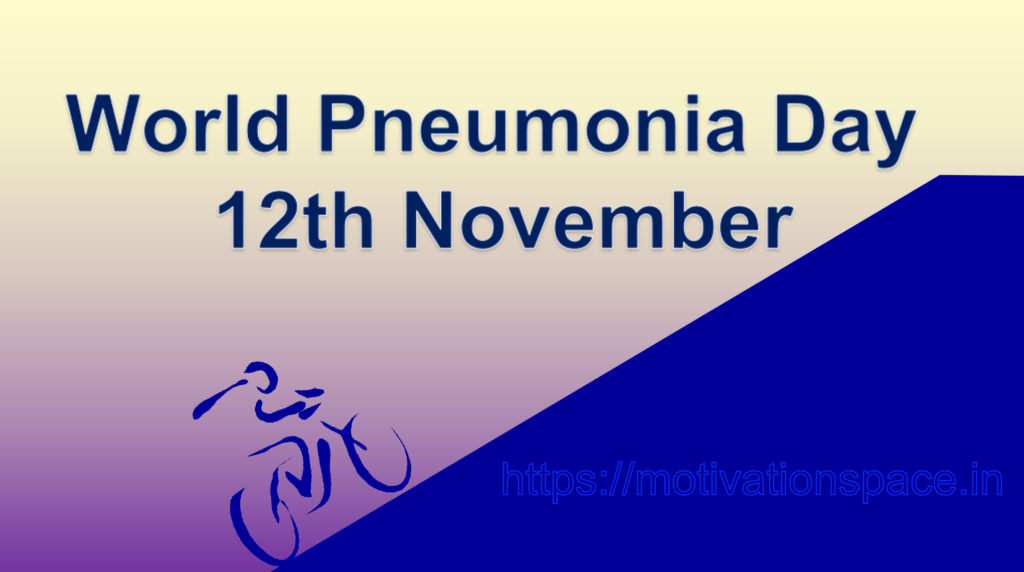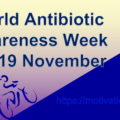Contents of this article
World Pneumonia Day: Combating the Silent Epidemic. World Pneumonia Day, observed annually on November 12th, is a global call to action to raise awareness about pneumonia, a silent but deadly infectious disease that claims the lives of millions, particularly among the most vulnerable populations. Pneumonia, often overshadowed by high-profile diseases, is a leading killer, especially of children under the age of five. This day serves as a reminder of the urgency to address pneumonia, promote prevention, and improve treatment and care. In this article, we explore the history, significance, and ongoing efforts to combat pneumonia on World Pneumonia Day.
Understanding Pneumonia: A Global Health Challenge
Pneumonia is an infectious disease that affects the lungs, causing inflammation of the air sacs and leading to symptoms such as cough, fever, and difficulty breathing. It can be caused by various pathogens, including bacteria, viruses, and fungi. Pneumonia is a major public health concern for several reasons:
High Mortality Rates:
Pneumonia is a leading cause of death worldwide, responsible for the deaths of more than 2.5 million people each year, according to the World Health Organization (WHO). It is the deadliest infectious disease for children under the age of five.
Vulnerable Populations:
Pneumonia disproportionately affects the most vulnerable populations, including infants, the elderly, and people with weakened immune systems.
Global Impact:
Pneumonia is a global issue, but it is particularly prevalent in low- and middle-income countries with limited access to healthcare and vaccination.
Preventable and Treatable:
Pneumonia is both preventable and treatable. Vaccines, proper nutrition, and early diagnosis and treatment can significantly reduce the burden of the disease.
The History and Significance of World Pneumonia Day
World Pneumonia Day was established in 2009 to draw attention to the enormous burden of pneumonia and promote efforts to combat the disease. The choice of November 12th is symbolic as it falls within World Antibiotic Awareness Week, emphasizing the role of antibiotics in treating bacterial pneumonia.
The day serves several important purposes:
Raising Awareness:
World Pneumonia Day increases awareness about pneumonia’s impact on global health, particularly its devastating effect on children and vulnerable populations.
Advocacy:
It provides a platform for advocacy and calls to action for governments, policymakers, healthcare professionals, and civil society to prioritize pneumonia prevention and treatment.
Prevention and Education:
The day promotes education about pneumonia prevention, including vaccination, proper nutrition, and hygiene.
Research and Innovation:
It encourages research and innovation in diagnosing and treating pneumonia and highlights the importance of antibiotic stewardship.
Collaboration:
World Pneumonia Day encourages partnerships and collaboration among organizations, healthcare providers, and individuals to address the disease comprehensively.
The Global Impact of Pneumonia
Pneumonia knows no boundaries, affecting people of all ages in every corner of the world. However, its impact is most severe in low- and middle-income countries. Here are some key aspects of the global impact of pneumonia:
High Child Mortality:
Pneumonia is a leading cause of child mortality, particularly in sub-Saharan Africa and South Asia. Each year, it claims the lives of approximately 672,000 children under the age of five.
Elderly and Vulnerable:
The elderly and individuals with underlying health conditions are at a higher risk of severe pneumonia and its complications.
Economic Burden:
Pneumonia places a significant economic burden on countries, with healthcare costs, lost productivity, and the cost of premature death.
Malnutrition and Pneumonia:
Malnutrition is a major risk factor for pneumonia, and pneumonia can lead to malnutrition, creating a vicious cycle of poor health.
Seasonal Variation:
Pneumonia often exhibits a seasonal pattern, with an increased incidence during the colder months.
Prevention and Treatment: A Multi-Faceted Approach
Preventing and treating pneumonia requires a multi-faceted approach involving vaccination, nutrition, hygiene, and improved access to healthcare. Here are some key strategies:
Vaccination:
Vaccination is one of the most effective methods for preventing pneumonia. Vaccines such as the pneumococcal conjugate vaccine and Haemophilus influenzae type b (Hib) vaccine can protect against the most common pathogens that cause pneumonia.
Exclusive Breastfeeding:
Encouraging exclusive breastfeeding for the first six months of a child’s life can help strengthen the infant’s immune system and reduce the risk of pneumonia.
Good Nutrition:
Proper nutrition is essential for maintaining a strong immune system. Malnutrition weakens the body’s defenses, making individuals more susceptible to pneumonia.
Clean Water and Hygiene:
Access to clean water and hygiene practices, such as handwashing, can reduce the transmission of infectious agents that cause pneumonia.
Improved Healthcare Access:
Timely access to healthcare for early diagnosis and treatment is critical. Antibiotics can effectively treat bacterial pneumonia if administered promptly.
Antibiotic Stewardship:
To combat antibiotic resistance, it is essential to use antibiotics responsibly, following proper guidelines and completing the prescribed course of treatment.
Research and Innovation
Research and innovation are crucial in the fight against pneumonia. Scientific advancements can lead to better vaccines, improved diagnostic tools, and more effective treatment options. Innovations such as pulse oximeters for measuring blood oxygen levels have proven invaluable in assessing the severity of pneumonia, especially in resource-limited settings.
Global Initiatives and Organizations
Several organizations and initiatives are actively working to combat pneumonia on a global scale:
Gavi, the Vaccine Alliance:
Gavi has played a significant role in increasing access to vaccines, including those targeting pneumonia.
UNICEF:
UNICEF works to ensure that children worldwide have access to vaccines, proper nutrition, and healthcare.
The Global Fund to Fight AIDS, Tuberculosis, and Malaria:
This organization supports efforts to combat pneumonia in the context of broader health initiatives.
WHO:
The World Health Organization provides guidance and support for pneumonia prevention and control efforts.
Conclusion for World Pneumonia Day
World Pneumonia Day serves as a poignant reminder of the silent epidemic that claims millions of lives each year. It emphasizes the urgent need to address pneumonia through prevention, treatment, and global collaboration. By raising awareness, advocating for action, and supporting research and innovation, individuals and organizations can work together to reduce the impact of pneumonia on communities worldwide. With concerted efforts and a commitment to saving lives, we can make significant strides in combating this deadly disease and ensuring a healthier future for all. World Pneumonia Day is an opportunity for us to unite in the fight against pneumonia and make a difference in the lives of those most vulnerable to its devastating effects. Feel free to contact us for any query related to this website.


